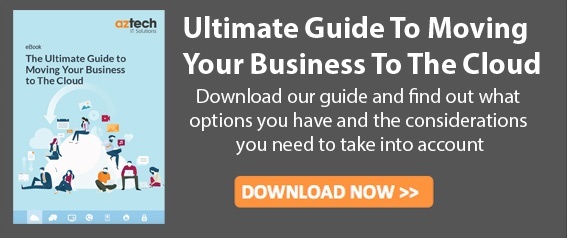As businesses continue to move more of their operations into the digital cloud environment, they must be mindful of the various challenges that come with making this transition.
From increased security risks to potential compatibility issues or a lack of proper maintenance, these problems can hinder a business' ability to use all its resources and reach its goals.
In order to be successful in operating from the cloud, companies must identify these challenges and plan accordingly for how best to mitigate them.
By understanding the full scope of changes that may need to occur as part of moving your systems and data into the cloud, you can develop an effective strategy for success.
Here are some key considerations every business should understand before taking on such a major shift in operations.
Top 10 Cloud Migration Risks and Challenges for Business
Here are the top 10 challenges of moving to the cloud for businesses:
1. Security Issues
One of the biggest challenges and risks of moving to the cloud is security issues. Security is a major concern for many businesses, as data stored in the cloud can be vulnerable to cyber-attacks such as malware, phishing, and ransomware.
Additionally, since data is stored offsite, businesses must ensure that they have adequate security measures in place to protect their data from unauthorised access or theft.
 Source: Cloud Zero
Source: Cloud Zero2. Compliance Issues
Another challenge associated with moving to the cloud is compliance issues. Depending on the industry and location of the business, there may be specific laws and regulations that must be followed when storing data in the cloud.
In addition, businesses must ensure that they are compliant with all applicable laws and regulations before migrating their data to the cloud.

3. Cost Overruns
Moving to the cloud can also lead to cost overruns if not managed properly. Cloud services typically charge based on usage, so businesses should carefully monitor their usage in order to avoid unexpected costs.
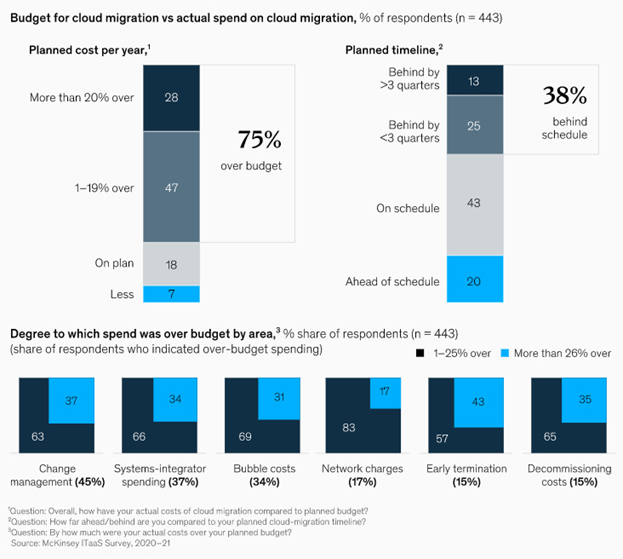
Additionally, organisations should ensure that they are taking advantage of any discounts or promotions offered by their cloud provider in order to keep costs under control.
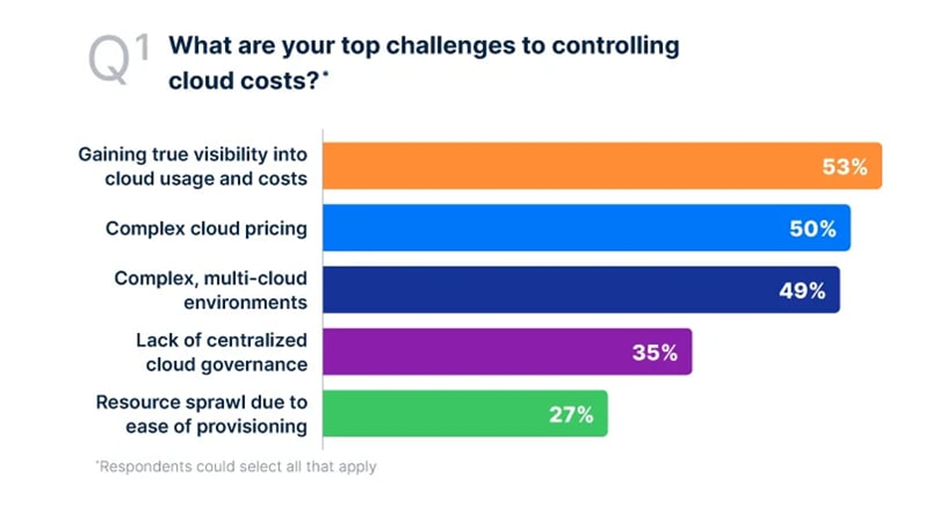
4. Lack of Control and Expertise
Another risk of moving to the cloud is lack of control and expertise. Businesses may experience a lack of control when moving to the cloud due to limited visibility into how their data is being used or managed by their cloud provider.
Also, this lack of control can make it difficult for businesses to troubleshoot any issues that arise with their data or applications hosted in the cloud.
Moreover, businesses should ensure that they have a good understanding of how their data is being managed before migrating it to the cloud.
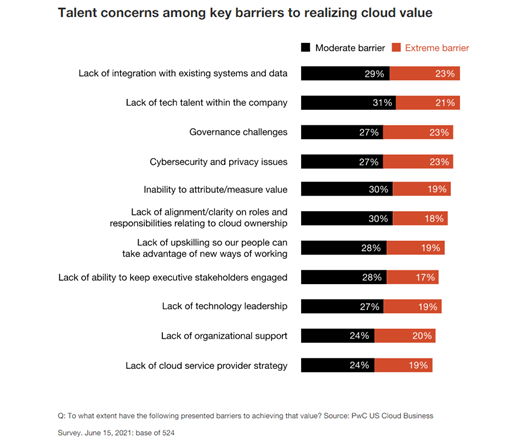
5. Vendor Lock-in
One of the main challenges of moving to the cloud is vendor lock-in. Migrating applications or data to a single vendor’s platform can lead to vendor lock-in, which can limit an organisation’s ability to switch vendors if needed in the future due to cost increases or other factors.
Furthermore, to avoid this issue, businesses should consider using multiple vendors for different services or applications instead of relying on a single vendor for all of their needs.
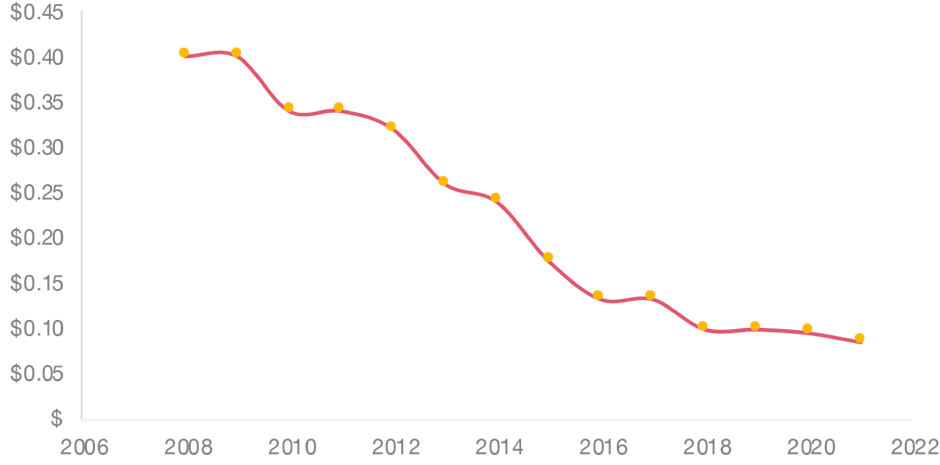
All prices are USD cost per hour for Linux on-demand from the us-east-1 region in the earliest available archived month of data for the quoted year.
6. Data Loss/Integrity Issues
Data loss or integrity issues can occur if a business does not have adequate backup procedures in place when migrating its data and applications to the cloud.
Additionally, businesses should ensure that they have a robust backup plan in place before migrating any critical information or applications so that they can quickly restore lost information if needed without significant disruption or downtime.
7. Performance Issues
Performance issues can arise when moving applications and data from on-site servers to virtualised environments within a public cloud environment due to latency and bandwidth constraints between on-site systems and public clouds hosted at remote locations across wide area networks (WAN).
Organisations should work closely with their IT teams and providers when planning migrations in order to identify potential performance bottlenecks prior to migration so that these issues can be addressed ahead of time if possible.
8. Scalability Challenges
One of the main disadvantages of moving to the cloud is scalability, Businesses may also face scalability challenges when moving applications and workloads from on-site servers into virtualised environments within public clouds due to its shared resource nature, which makes scaling up quickly quite difficult without proper planning ahead of time.
Organisations should identify potential scalability requirements upfront prior to migration, so that appropriate infrastructure changes can be made accordingly.
9. Data Privacy Concerns
Data privacy concerns are another challenge associated with moving sensitive information into public clouds, as some countries may not allow certain types of information stored outside its borders, while other countries may require additional security measures above what is already offered by most public cloud providers.
It's important for businesses to understand local laws regarding storage requirements prior to migrating any sensitive information into public clouds, as failure do so could result in legal ramifications down the line.
10. Vendor Reliability
Finally, one last challenge associated with moving workloads into public clouds is ensuring reliability from your chosen vendor(s) as no one wants to experience service outages during peak times which could cause significant financial losses due to lost revenue opportunities etc.
Businesses should thoroughly research each potential vendor prior to making any decisions, to determine reliability, quality customer support, etc.
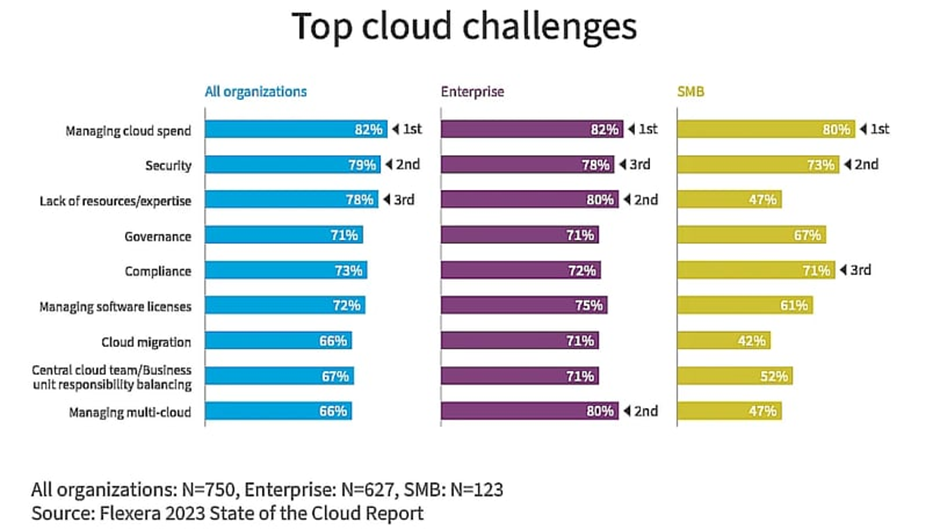
Conclusion
In conclusion, migrating to the cloud can be a risky endeavour, with its benefits too. Security issues, compliance issues and cost overruns are just a few of the risks that a business should consider when evaluating a transition to the cloud.
Additionally, lack of control, vendor lock-in, data loss/integrity issues, performance issues, scalability challenges, data privacy concerns and vendor reliability all must be addressed before any migration will be successful.
While each of these risks is different in terms of complexity and scale, they must be addressed one way or another if the migration is to be a success.
Businesses today are accepting more risks every day as they move towards the future. Knowledge is power in this situation; take the necessary precautionary steps before jumping into the complexities of migrating any process or system onto the cloud.
Did you find this article informative? Share it with anyone who might benefit from learning about such risks and feel free to contact us with any questions regarding transitioning into Cloud Computing!

-1.png?width=552&height=678&name=text-image%20module%20desktop%20(4)-1.png)


.png?width=2000&name=Case%20study%20(21).png)


-2.png?width=422&height=591&name=text%20image%20tablet%20(31)-2.png)

-2.png?width=1366&height=768&name=Blog%20Hero%20Banners%20(4)-2.png)
-2.png?width=1366&height=768&name=Blog%20Hero%20Banners%20(5)-2.png)

